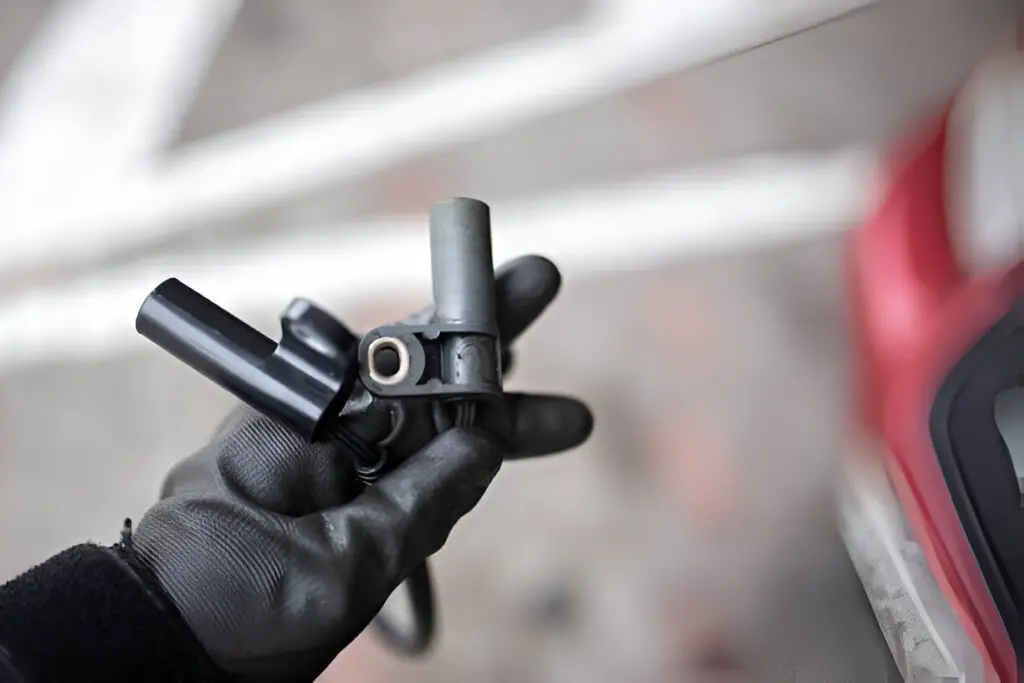Yes, a bad crankshaft sensor can cause a no-start condition. The sensor provides crucial data to the engine control module (ECM) for ignition timing and fuel injection. If the sensor fails, the ECM may not receive the correct signals to start the engine, resulting in the engine cranking but not starting.
The crankshaft position sensor (CKP) is one of the most crucial components in modern internal combustion engines, responsible for monitoring the position and rotational speed of the crankshaft. This information is vital for the engine control module (ECM) to manage fuel injection and ignition timing accurately. A malfunctioning crankshaft sensor can lead to various engine issues, with one of the most serious being a no-start condition.
Contents
How a Bad Crankshaft Sensor Causes a No-Start Condition
A bad crankshaft sensor can cause a no-start condition for several reasons:
- No Signal to the ECM: If the crankshaft sensor fails, it may not send any signal to the ECM. Without this signal, the ECM cannot determine the crankshaft’s position, preventing it from initiating spark and fuel injection. As a result, the engine may crank but not start.
- Incorrect Timing: A malfunctioning sensor may send inaccurate data to the ECM, causing incorrect ignition timing. If the timing is off, the air-fuel mixture in the cylinders may not ignite properly, leading to a no-start condition.
- Fuel Injection Issues: The crankshaft sensor’s data is also used to time the fuel injectors. If the sensor fails, the injectors may not deliver fuel to the cylinders at the right moment, preventing the engine from starting.
- ECM Failsafe Mode: In some cases, the ECM may enter a failsafe or limp mode when it detects a problem with the crankshaft sensor. In this mode, the ECM may disable the ignition system entirely to protect the engine, leading to a no-start condition.
Symptoms of a Bad Crankshaft Sensor
While a no-start condition is one of the most serious symptoms of a bad crankshaft sensor, there are other signs that may indicate the sensor is failing:
- Intermittent Starting Problems: The engine may start sometimes but fail to start at other times, especially when the engine is hot.
- Engine Stalling: The engine may stall unexpectedly while driving, particularly when coming to a stop or idling.
- Engine Misfires: A failing crankshaft sensor can cause misfire, leading to rough running and poor performance.
- Check Engine Light: The ECM may trigger the check engine light if it detects a problem with the crankshaft sensor. Diagnostic trouble codes (DTCs) such as P0335 may be stored in the ECM.

Frequently Asked Questions
Here are some FAQs about the bad crankshaft sensor
1. How do I know if my crankshaft sensor is bad?
Common symptoms of a bad crankshaft sensor include intermittent starting problems, engine stalling, misfires, and the check engine light illuminating. The engine may also fail to start entirely if the sensor is faulty.
2. Can I still drive my car with a bad crankshaft sensor?
While it may be possible to drive with a failing crankshaft sensor, it is not recommended. A faulty sensor can lead to poor engine performance, stalling, and a no-start condition, leaving you stranded.
3. How much does it cost to replace a crankshaft sensor?
The cost of replacing a crankshaft sensor varies depending on the make and model of your vehicle. On average, the cost ranges from $120 to $300, including parts and labor.
4. What other issues can cause a no-start condition besides a bad crankshaft sensor?
Other causes of a no-start condition include a faulty camshaft sensor, dead battery, failed starter motor, faulty ignition switch, or problems with the fuel delivery system.
5. How long does it take to replace a crankshaft sensor?
Replacing a crankshaft sensor typically takes about 1 to 2 hours, depending on the location of the sensor and the accessibility in your specific vehicle.
Conclusion
A bad crankshaft sensor is a common cause of no-start conditions in modern vehicles. The sensor plays a crucial role in providing the ECM with the information it needs to control ignition timing and fuel injection. When the sensor fails, the ECM may not be able to start the engine, leading to a frustrating no-start condition.